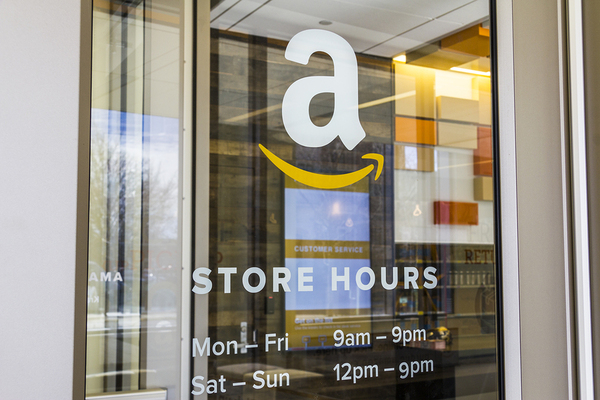One of the innovative digital products of the last few years has been the cash-free retailer. Stores, like Amazon Go, allow customers to purchase items with an app and a debit or credit card. Transactions are done entirely without cash – in fact, in Amazon Go stores, cash is not an option.

Amazon Go is a leading cashless retailer.
Discriminatory in Practice?
For customers, cash-free stores offer instant convenience and, of course, don’t require carrying sums of cash, which can be an added convenience and safety consideration. For retailers, they offer convenience and also simplify transactions. They even potentially cut down on crime.
But cash-free retail establishments are not universally popular. Several cities and states are considering bans on cash-free retail. Why? First, they are felt to discriminate against people who can’t get credit or debit cards, according to Fast Company. Second, some lawmakers feel they discriminate against senior citizens, who may neither have smartphones and apps nor be comfortable getting them.
In the state of Massachusetts, cashless stores have been illegal since the late 1970s. Pending bills against cash-free retailers vary. In New York City, proposed legislation would make acceptance of cash mandatory. (This does not mean, of course, that customers can’t use apps or credit/debit cards to pay; it only means that cash must be an option.) In the state of New Jersey, a proposed bill would require all retailers with a physical location to accept cash proffered in person, according to the Philadelphia Inquirer. (Non-cash transactions on the Web, via mail, or via telephone are excluded.)
Bills against cashless stores are also being considered in Philadelphia, Chicago and Washington, D.C.

Pending bills would require that cash be among the payment methods offered.
How Cashless Stores Might Be Affected
Currently, Amazon is the retailer most likely to be affected. Its Amazon Go is always cashless. The company also has several Amazon bricks-and-mortar bookstores and Amazon pop-up stores that have been set up to be cashless.
There is an Amazon Go store in Chicago, which is one of the cities weighing a ban.
But it could be the company’s expansion plans that are more affected than current prototype stores. Amazon has indicated plans to open 3,000 cashless stores by 2021. Not only that, but it had planned to test Amazon Go methods in larger stores. A ban in major cities could put a damper on the expansion plans.
Penalties aren’t cheap, either. Retailers could be fined $2,500 for a first breach in New Jersey, for example, and $5,000 for a second instance. If violations continue, stores could be charged with consumer fraud, whose fines could rise as high as $20,000.
While cashless stores may become a thing of the past if the pending bills pass, the cashless concept could still be rolled out in tandem with more traditional payments. All pending bills don’t ban payment with apps or plastic payment; they just require that cash payment be an available method. Will that affect Amazon business leadership’s analysis of the cost structure and efficiencies, and thus its rollout plans? It depends on those assessments, as well as what happens in statehouses and city legislatures across the country.
